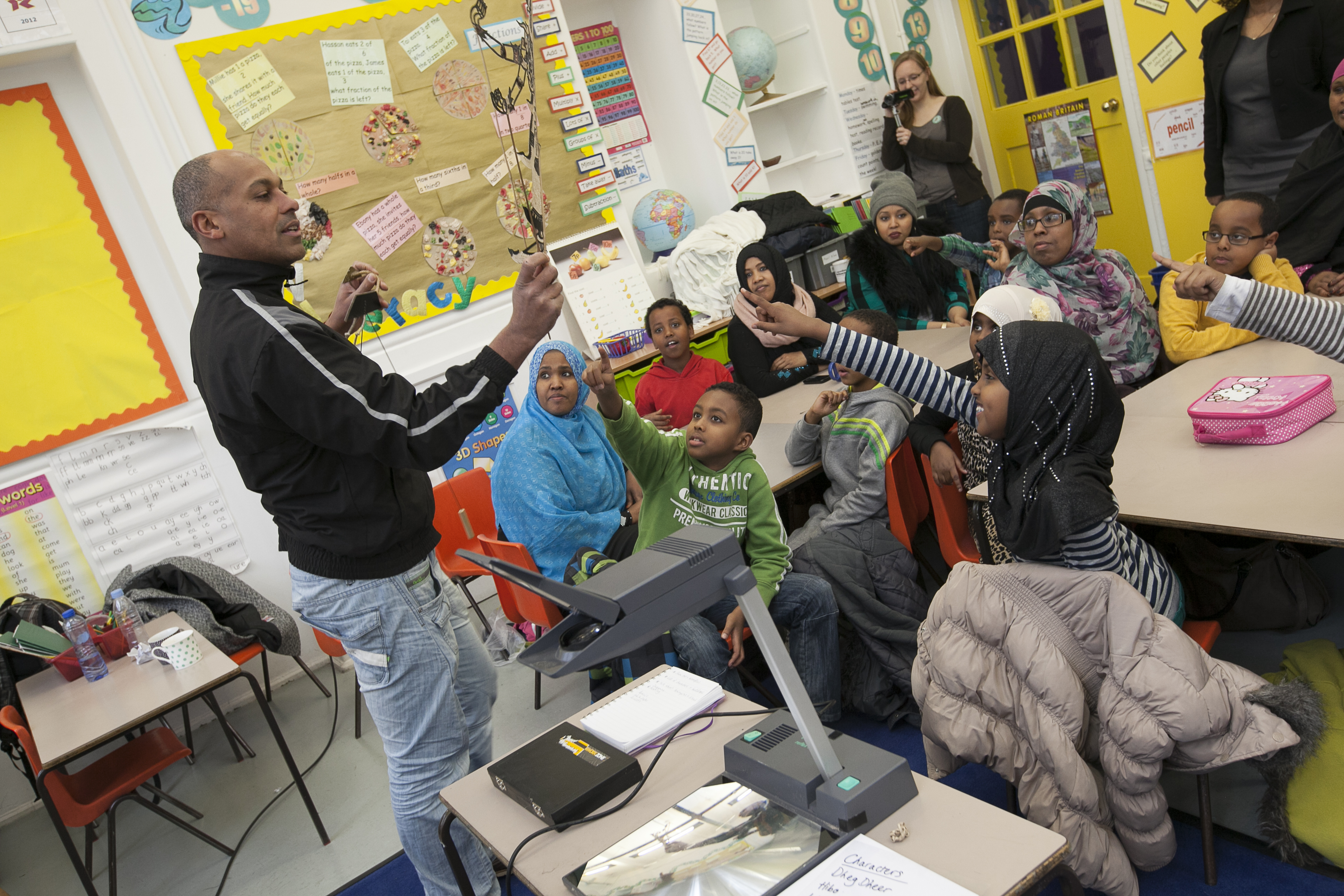Britain has one of the most culturally diverse societies in the world, but has been slow to support literary traditions and languages of other cultures.
The aim of Literature in Translation has been to undertake initiatives to promote multiculturalism in the UK, and international literature in translation for adults and children, in collaboration with other literary agencies, including the British Centre for Literary Translation (BCLT), Free Word Centre, Translators Association and Literature Across Frontiers.
We then continued to support the following projects under this closed programme:
- The Stephen Spender Trust: £14,000 towards developing and running the pilot of a training programme for translators-facilitators, and creating an online resource to support translators and teachers working in linguistically and culturally diverse UK schools. A further £8,000 to enable the Translators in Schools programme to multiply the originally intended number of graduates and greatly maximise its impact by supporting additional places for a particularly strong pool of candidates from the original cohort.
- National Centre for Writing: £63,000 towards a programme to consolidate the progress and secure the legacy of the work supported under the Literature in Translation strand, enabling the Foundation to focus on devising an exit strategy that secures the legacy of its investment, delivers maximum benefit to the sector, and takes it to the next level.
- British Centre for Literary Translation: £12,500 for a new season of public events to bring translated literature to new audiences at UK literary festival and specialised venues.
- Norwood School: £15,000 to develop and deliver four school-based bi-lingual creative writing courses and a training programme to enable teachers to adapt these to their school’s particular needs.
Translating Culture: Highlights from the Literature in Translation and Multilingualism programme is our evaluation report which explains our reasons for supporting this work and highlights its impact.

